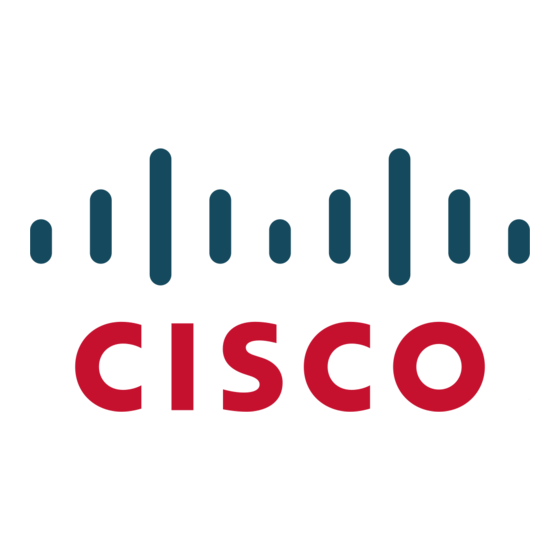Cisco 1751 Gegevensblad - Pagina 8
Blader online of download pdf Gegevensblad voor {categorie_naam} Cisco 1751. Cisco 1751 19 pagina's. Modular access router
Ook voor Cisco 1751: Oplossingsoverzicht (16 pagina's), Snelstarthandleiding (35 pagina's)

Security
Cisco IOS Software supports an extensive set of basic and advanced network security features, including access
control lists (ACLs); user authentication, authorization, and accounting (such as PAP/CHAP, TACACS+, and
RADIUS); and data encryption. To increase security, the integrated Cisco IOS Firewall Feature Set protects internal
LANs from attacks with context-based access control (CBAC) and Intrusion Detection (IDS), while IPSec tunneling
with data encryption standard DES and 3DES encryption provide standards-based data privacy, integrity, and
authenticity as data travels through a public network. Additionally, remote management applications, such as Cisco
Security Device Manager (SDM), make it easier than ever to deploy and monitor security applications on your Cisco
router.
The Cisco 1700 Series routers support the Cisco Easy VPN client feature that allows the routers to act as remote
VPN clients. As such, these devices can receive predefined security policies from the headquarters' VPN head-end,
thus minimizing configuration of VPN parameters at the remote locations. This solution makes deploying VPN
simpler for remote offices with little IT support or for large deployments where it is impractical to individually
configure multiple remote devices. While customers wishing to deploy and manage site-to-site VPN would benefit
from Cisco Easy VPN client because of its simplification of VPN deployment and management, managed VPN service
providers and enterprises who must deploy and manage numerous remote sites and branch offices with IOS routers
for VPN will realize the greatest benefit.
The Cisco 1700 Series routers also support the Cisco Unified VPN Access Server feature that allows a Cisco 1700
router to act as a VPN head-end device. In site-to-site VPN environments, the Cisco 1700 router can terminate VPN
tunnels initiated by the remote office routers using the Cisco Easy VPN client. Security policies can be pushed down
to the remote office routers from the Cisco 1700 Series routers. In addition to terminating site-to-site VPNs, a Cisco
1700 Series router running the Unified VPN Access Server can terminate remote access VPNs initiated by mobile and
remote workers running Cisco VPN client software on PCs. This flexibility makes it possible for mobile and remote
workers, such as sales people on the road, to access company intranet where critical data and applications exist.
For remote access, VPNs, Layer 2 Forwarding (L2F), and Layer 2 Tunneling Protocol (L2TP) combine with IPSec
encryption to provide a secure multiprotocol solution for IP, IPX, and AppleTalk traffic, and more. Mobile users can
dial in to a service provider's local point of presence (POP) and data is "tunneled" (or encapsulated inside a second
protocol such as IPSec or L2TP) back to the Cisco 1751 router to securely access the corporate network via
the Internet.
Cisco IOS Software QoS Features
Through Cisco IOS Software, the Cisco 1751 Router delivers quality of service (QoS) capabilities, including Resource
ReSerVation Protocol (RSVP), Weighted Fair Queuing (WFQ), Committed Access Rate (CAR), and IP Precedence.
These features enable businesses to prioritize traffic on their networks by user, application, traffic type, and other
parameters, to ensure that business-critical data and delay-sensitive voice are appropriately prioritized.
Because the Cisco 1751 Router provides robust voice compression, up to 8 voice calls can occupy a single 64K data
channel simultaneously, without compromising data performance. Cisco IOS voice compression technology
integrates data and voice traffic to enable efficient use of existing data networks.
Cisco Systems, Inc.
All contents are Copyright © 1992–2003 Cisco Systems, Inc. All rights reserved. Important Notices and Privacy Statement.
Page 8 of 19
